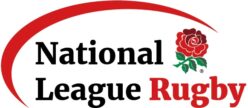Exclusive: RFU Development Director Steve Grainger provides update on National Leagues
RFU Development Director Steve Grainger has said the return of National League rugby effectively relies on two key elements; the prevalence of Covid in the community and if Government changes its policies.
Tiers three and four have been out of action since March due to the coronavirus crisis and clubs up and down the country are waiting to see when the 2020/21 season can commence.
On Tuesday, we moved into Stage D of the RFU’s Return to Rugby Roadmap which allows clubs to reintroduce tackling and rucking into their training sessions for 15 minutes, but full-contact, competitive club rugby will not return until we reach the final phase of the roadmap; Stage F.
Having seen the Gallagher Premiership resume, as well as other grassroots sports, people are understandably eager to see the community game return and following the announcement that no competitive rugby will be played in October, Grainger explained the decision process on NCA Rugby Chats.
The phased return of community rugby takes the next step from September 1.
On to Phase D ⬇️
— England Rugby (@EnglandRugby) August 28, 2020
“We are in conversations with government about what they would expect to see to get us to that next point,” Grainger said.
“Everything so far has been evidence based and as we sit here at the moment, as we understand it, it is really down to one of two things. Firstly, there has to be a reduction in prevalence of Covid in the community.
“Unfortunately, at the moment, we know that is beginning to go the other way. We have probably got a big test point over the next couple of weeks as schools go back and we have probably seen the biggest migration of workers back into the workplace in these last few weeks so the next two to three weeks should be an interesting test.
“The second thing is a different sort of risk that Government are prepared to take. We have gone from a total lockdown to a reduced lockdown and we have seen freedoms coming in elsewhere so potentially, there is going to have to be a point where people say it is about personal choice. I think it is either Government taking a different risk appetite for this or it is a lower prevalence of Covid in the community.”
The Scottish Government has given the go-ahead for grassroots rugby to resume from October 31st, raising more question marks around the community game in England, but Grainger said the RFU have to follow government policy and their current restrictions around face-to-face contact are the main obstacles.
He added: “I think has most people know at the moment we’ve got a six-stage roadmap and we have said that once we move to Stage F, that is when the league competitions will recommence.
“We have committed that it is absolutely the right thing again to give it at least four weeks between Stage E which would be getting back to normal training for competition with every piece of the game being able to be included in coaching and training sessions. We are clearly not there yet.
“The position, still, is that there are the three main areas of our game which just carry too much of a risk. The scrum, and particularly the setting of the scrum, and the interactions between the front-rows, the tackle and particularly the upright tackle where you have got someone hitting someone at pace and the third area is in the lineout and it is not the lineout per se, it tends to be the maul that ensues.
“So short of removing those three things from the game, we are sort of stuck until the Government position changes or until the prevalence of Covid in the community reduces.
“Many people are looking at the Premiership and saying why can’t we do that? The first thing is, government have been very clear that there is an ‘elite return to play’ protocol and there is a ‘recreational return to play’ protocol.
“We know the Premiership have got there because they are testing on a weekly basis. That is costing them thousands of pounds a week and also those players, the rest of their interaction with people is able to be monitored and controlled.
“Their place of work is the rugby club where they are with other people who are being tested. In our National Leagues, if you imagine a squad of 30 all of whom are going to a workplace every day and all of whom are interacting with other people, the multiplier effect from that is huge.”
Thank you to all of our clubs who have recently offered their opinions and thoughts on the possible scenarios regarding the resumption of competitive rugby at our level.
📌 Here are some of the key points which we'd like to share: https://t.co/UVVYeSUEoB#Nat1 #Nat2n #Nat2s pic.twitter.com/ZLtxGjnEyM
— NCA Rugby (@nca_rugby) August 21, 2020
Grainger and the RFU will continue to assess the situation and announce another update regarding the landscape for the 2020/21 season on October 2nd.
Following a recent NCA executive meeting, the majority of clubs were in favour of creating a ‘meaningful’ season where sides would at least play everyone once.
“I know it is not everyone’s view, but it typifies the challenge in this situation,” Grainger added. “I think the overall view for a ‘meaningful’ season would be where we can play at least half the number of games you would get. Everyone is playing each other at least once.
“That’s the current position, but clearly if there is a massive groundswell that says that needs to change, then it will. There was by no means unanimous support for that, but there was certainly a good majority support for that but we will keep looking at things. That has what we have pledged to do.”

